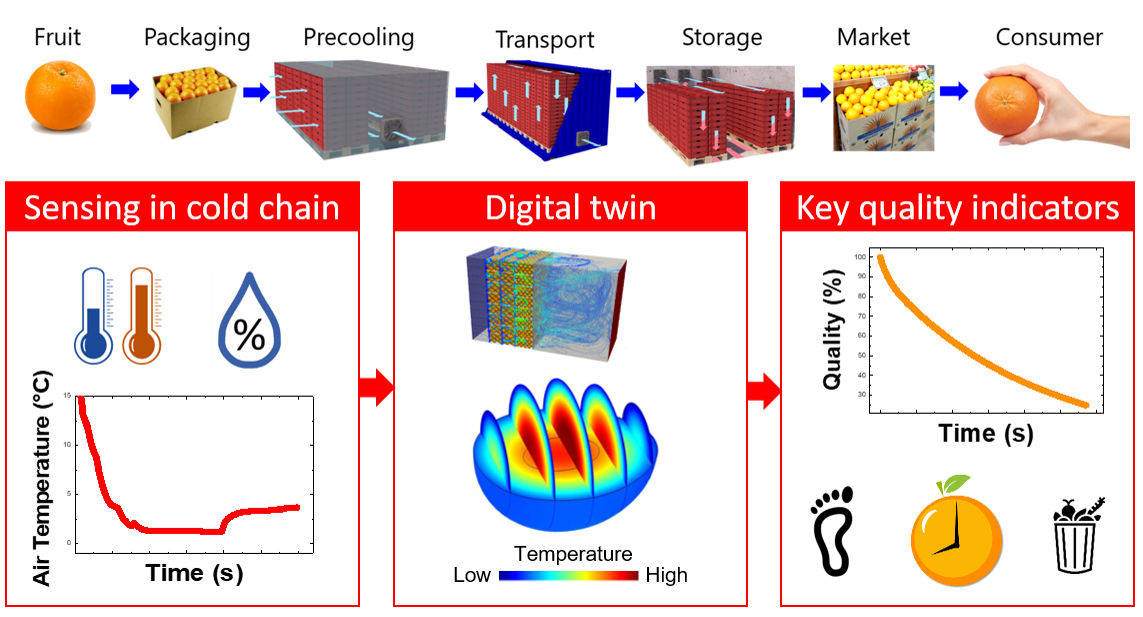Convective cooling of heat-sensitive products organised in macro-porous assemblies: a novel conjugate method

Type. SNSF project
Funding. This PhD project is funded by the Swiss National Science Foundation (SNSF).
Duration. 3 years (2017-2020)
Collaborations. tbd
Contact. Thijs Defraeye (principal investigator).
Staff. Chandrima Shrivastava (PhD student).
Project background.
In postharvest supply chains of fresh fruit and vegetables, each cold chain is unique in terms of temperature history and duration. As a result, every shipment has a different, yet unknown, loss of its quality attributes from farm to retailer. Knowledge of where, why and how much fresh-produce quality is reduced is critical to further optimize cooling operations and cold chain logistics, in order to maximize shelf life at the retailer’s store and to reduce food waste.This project has the aim to identify where food quality loss occurs, to quantify how large this is, and to optimize the supply chain. The work will enable to better identify how individual perishable products react inside a cargo of millions in cold chain unit operations, and to pinpoint why some products decay faster than others. This information will be used to quantify the environmental impact of optimized cold chain solutions.
Publications.
1.Defraeye T., Tagliavini G., Wu W., Prawiranto K., Schudel S., Kerisima M.A., Verboven P., Bühlmann A. (2019), Digital twins probe into food cooling and biochemical quality changes for reducing losses in refrigerated supply chains, Resources, Conservation & Recycling 149, 778-794. DOI and postprint postprint
2.Tagliavini G., Defraeye T., Carmeliet J. (2019), Multiphysics modeling of convective cooling of non-spherical, multi-material fruit to unveil its quality evolution throughout the cold chain, Food and Bioproducts Processing 117, 310-320. DOI
